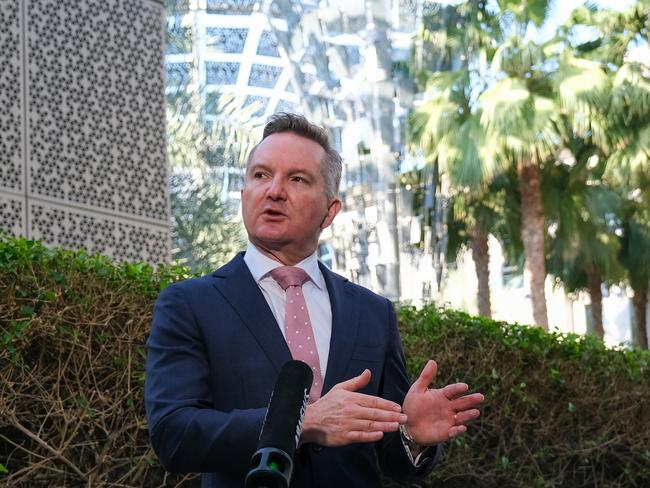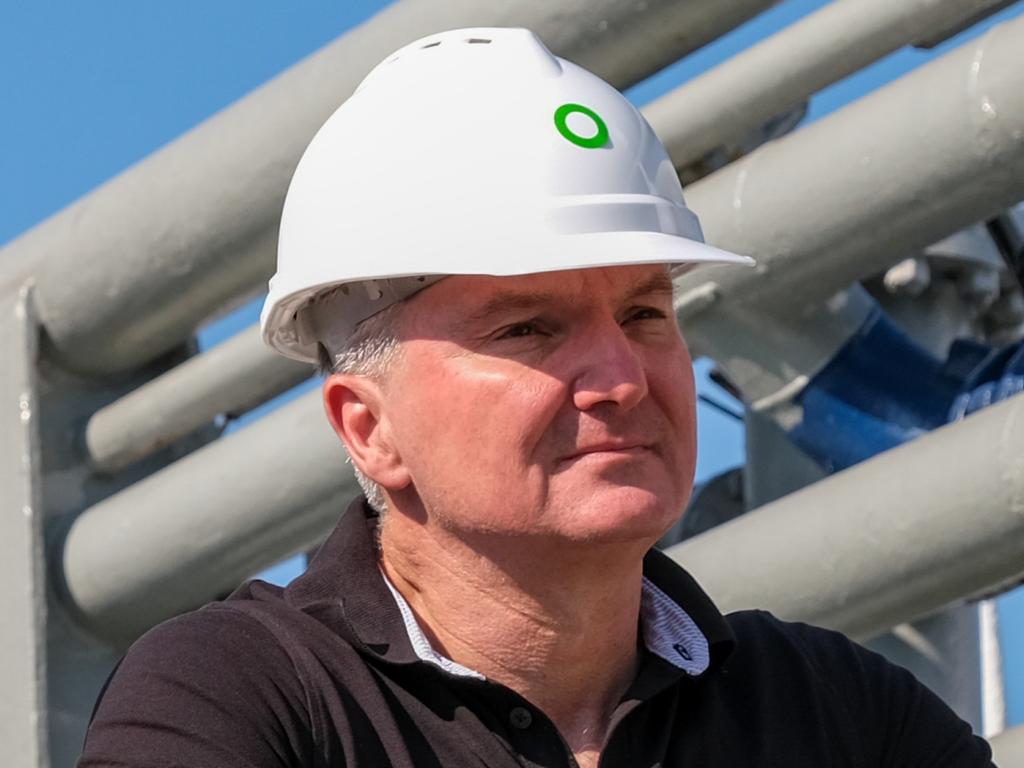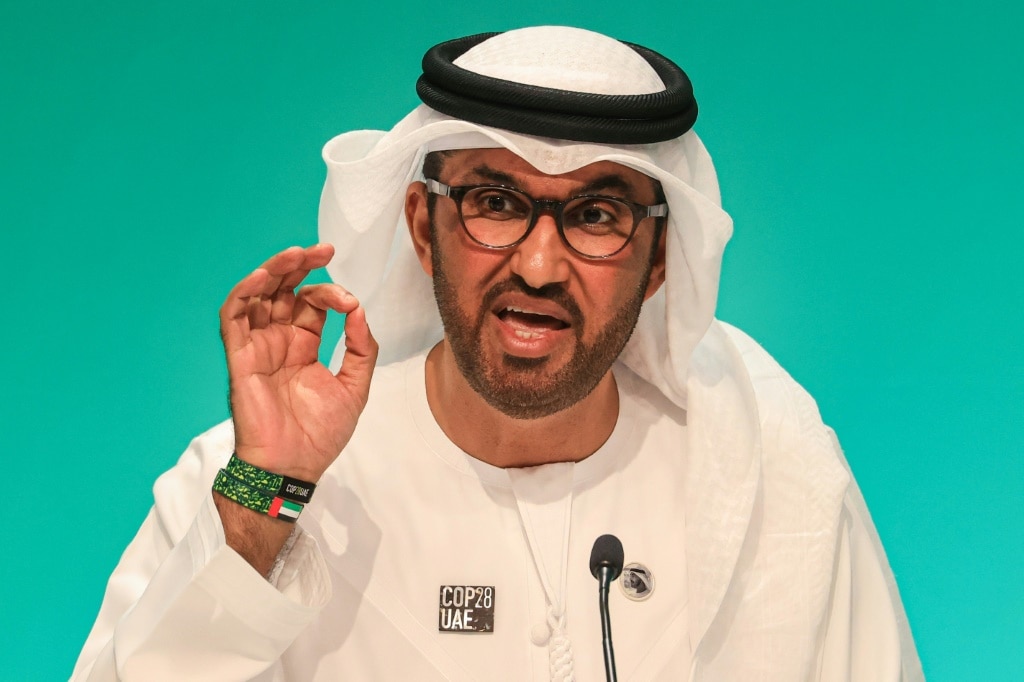‘Dog’s dinner’: Saudi Arabia blocks COP28 fossil fuels phase out
COP28 has been labelled a failure after OPEC countries blocked Australia’s effort to phase out unabated fossil fuels despite a ‘super majority’ supporting the drastic move.

United Nations climate conference COP28 has dropped the phasing out of oil and gas despite a “super majority” supporting the drastic move to keep the world on track to limit global warming to 1.5 degrees.
Instead, in a dilution of language and vague calls to action amid loose time lines – prompted by fierce resistance by OPEC oil-producing countries including Saudi Arabia – the text refers to “actions countries could take” to reduce fossil fuel emissions. It also mentions consumption and production of fossil fuel, for the first in a text, but the wording is fuzzy.
Certainly the initial reaction from climate observers has been scathing.
Climate Analytics chief executive Bill Hare said the draft, in its current form was a “mess and it was giving fossil fuel exporters a green light to expand their production”.
British politician Sir Alok Sharma, who was the COP26 president in Glasgow, asked with so many countries backing clear language on fossil fuel phase out: “Who does this (new) text actually serve?” He added: “It is difficult to see how this text will help to achieve the deep and rapid cut in emissions we need by 2030 to keep 1.5c alive”.
Greenpeace’s Kaisa Kosonen called the draft a “dog’s dinner” and the COP conference a failure. “Acting in line with science doesn’t mean you can do whatever you want,’’ she said.
Romain Ioualalen of Oil Change International said the draft was an incoherent and dangerous list of weak measures completely divorced from what was needed to limit warming to 1.5°C.
European Union’s Wopke Hoekstra, who has been pushing for a phase-out of fossil fuels told reporters: “I cannot hide the fact from you that as it stands, the text is disappointing.”
It could be a marathon overnight session for the representatives of nearly 200 countries to fine tune the draft in time for Tuesday’s planned final declaration with the texts about fossil fuels and financing being the most problematic.

Australia’s position, presented by Climate Minister Chris Bowen, and supported by like minded countries – the United States, Britain and Norway – calling for the ending of unabated fossil fuels, has not survived.
Mr Bowen told the Cop presidency the draft fails to listen to some of the world largest economies and the demands of the world’s smallest.
“Some of the world’s largest economies have now called for a phase out of unabated fossil fuels,” Mr Bowen said. “Some of the world’s smallest countries have now called on us to transition away from fossil fuels in an orderly and just manner. The rest of us should find it within ourselves to join them.
“The draft text, with respect, does not do that.”
The new draft says: “Reducing both consumption and production of fossil fuels, in a just, orderly and equitable manner so as to achieve net zero by, before, or around 2050 in keeping with the science”.
The draft lists some of the ways countries can “enhance efforts towards substitution of unabated fossil fuels in energy systems” by accelerating renewables, nuclear, abatement and carbon capture storage.
Climate activists insist that Australia, as the third largest exporter of fossil fuels, will be barely challenged around the new expansion of gas fields or increase production of oil production if this text is adopted into the final declaration.
The reference to the science is taken to mean the Intergovernmental Panel on Climate Change which has argued for rapid phase out of fossil fuels but the draft is worded vague enough to constitute an “out clause” for countries which want to resist such action.
Mr Bowen had argued that using abatement technologies to reduce fossil fuels was a “backstop goalkeeper” but others considered the unproven technology as a caveat to delay the phasing out of oil and gas.
The draft calls on countries to accelerate efforts globally towards net zero emissions energy systems, using zero and low carbon fuels well before or by around mid-century.
The draft also includes new coal limitations which could impact Australia’s expanding exports of thermal coal. It calls for “rapidly phasing down unabated coal and limitations on permitting new and unabated coal power generation”.
It also calls for accelerating and substantially reducing non-CO2 emissions, including, in particular, methane emissions globally by 2030.
As expected, the pledges for the tripling of renewable energy capacity globally and doubling the global average annual rate of energy efficiency improvements by 2030 were retained in the draft.
In addition to the fossil fuels text the other contentious issue has been climate financing. Developed nations have resisted providing moneys to vulnerable and poorer countries to mitigate against and adapt in preparation for extreme climate events.
A plan to raise US$100 billion each year by 2020 has not happened and the costs to bridge the gap of vulnerable countries to implement their own global warming efforts are estimated at USD $5.8–5.9 trillion for the pre-2030 period.
This financial issue will be centre stage at next year’s COP in Baku.
COP28 president Sultan al-Jaber urged all delegates to deliver for the most vulnerable and keep 1.5C within reach.
“I need all parties to show even more flexibility to get us to the finish line, the world is watching, let’s not rest until we get this done, he said.
“We have made progress but we still have a lot to do.”
The International Energy Agency said on Sunday that even if every country did as they promised it would only be a third of what is needed to close the gap in the next six years to limit global warming to 1.5C.








To join the conversation, please log in. Don't have an account? Register
Join the conversation, you are commenting as Logout